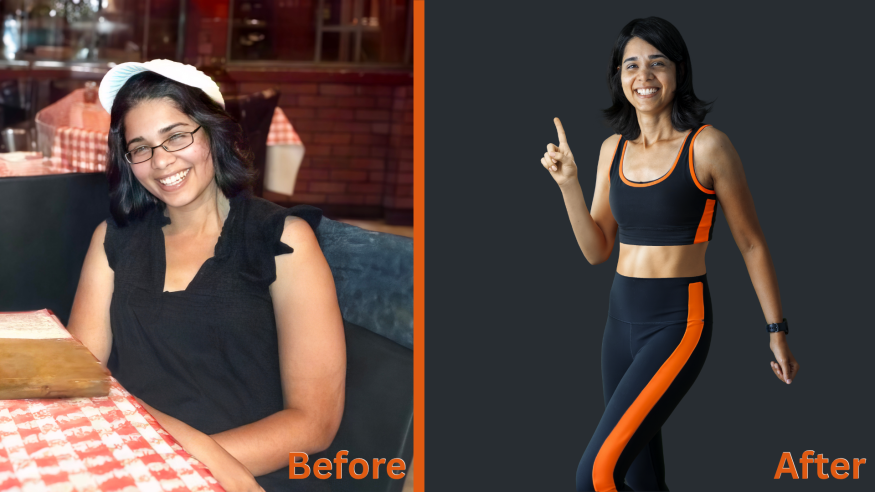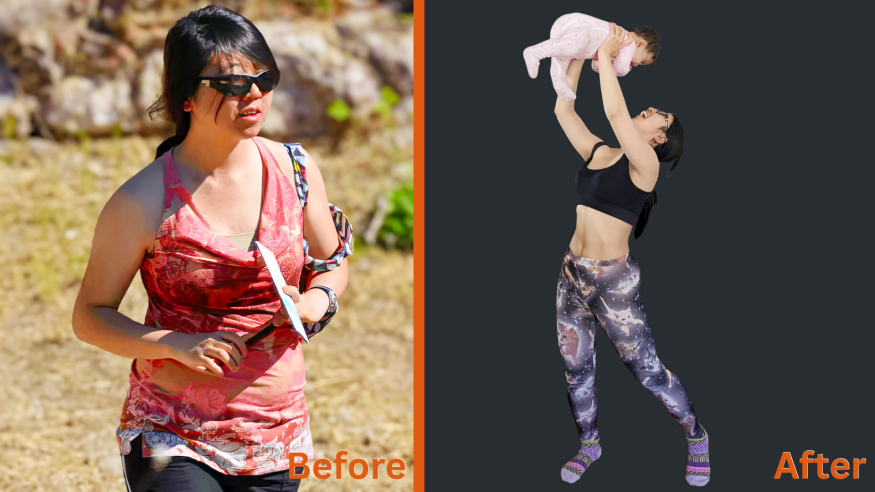Most health programs treat your body like a simple input-output machine: eat less, move more, get results. But if you've ever worked on optimizing complex processes or solving multi-variable problems, you know that real-world solutions are never that straightforward. That's exactly what Richa Prasad and Lucy Liang discovered when they applied their engineering backgrounds to the notoriously failure-prone world of weight loss.
"We kept seeing the same pattern," explains Richa, who transitioned from Microsoft to co-founding Coach Viva. "Smart, analytical people who could solve incredibly complex technical problems were completely stumped by their own health. The disconnect wasn't in their capability; it was in the approach."

Lucy, bringing both engineering expertise and Precision Nutrition certification to the partnership, saw the same contradiction everywhere. "We're trained to build robust, adaptable systems in our work, but then we try to manage our health with rigid, one-size-fits-all solutions that have no feedback mechanisms or flexibility."
The Systems Architecture of Health
What makes Coach Viva's methodology different isn't just that it's created by engineers, it's that it actually applies systematic thinking to biological processes. Instead of treating weight loss as a simple linear equation, they've designed it as what any good problem-solver would recognize: a complex, interconnected network with multiple dependencies, feedback mechanisms, and potential failure points.
"Think about it like managing any complex project," Richa explains. "You have multiple components that need to work together effectively: your metabolism, stress response, sleep cycles, hormonal patterns, and behavioral triggers. If one element fails, it affects the entire system. Most programs only track one variable and wonder why everything falls apart."
Their four-system framework reflects this analytical mindset: motivation (your project requirements), habits (your core processes), reprogramming (identifying and fixing flawed assumptions), and personalization (continuous testing and refinement).
Identifying and Fixing Mental Roadblocks
Perhaps the most innovative aspect of Coach Viva's approach is how they treat psychological barriers like systematic problems that need methodical identification and resolution. For health transformation, these roadblocks often manifest as limiting beliefs, emotional eating patterns, or all-or-nothing thinking that sabotages consistency.
"It's like conducting a thorough analysis of your own belief system," explains Richa. "We help people identify where their internal logic is creating predictable failure points, then systematically rebuild those patterns to support their actual goals."
Instead of trying to override these patterns through willpower alone, their methodology systematically identifies and restructures these mental processes. This analytical approach explains why their method works where others fail; most programs treat symptoms rather than root causes.
Iterative Improvement Over Perfection
One of the biggest advantages of thinking systematically about health is the emphasis on continuous improvement rather than perfectionism. Coach Viva applies the same test-and-refine principle to health habits that engineers use in product development.
"We've completely eliminated the concept of 'falling off the wagon,'" Lucy explains. "In project management, when something doesn't work as expected, you don't scrap the entire plan. You analyze what happened, adjust your approach, and keep moving forward."
Their methodology includes built-in contingency planning and adjustment protocols. If a particular nutrition approach isn't working, they don't see it as personal failure; they see it as valuable data that informs the next iteration.
"We take all the drama out of it and just turn it into data," Lucy says. "For people who think analytically, this completely removes that emotional rollercoaster that usually derails everything."

Building for Scale and Independence
After helping over 1,100 people through their coaching programs and reaching 165,000 subscribers on YouTube, Richa and Lucy have proven that systematic principles can scale in the health space. Their focus on creating independent users rather than dependent clients reflects a fundamental design principle: build frameworks that become more valuable over time, not more complex.
"We're essentially building the foundation for a new kind of health transformation," Richa explains. "Instead of creating dependency on coaches or programs, we're teaching people to become their own project managers for health."
Their frameworks are designed to be internalized and customized, allowing people to continuously optimize their own health processes long after formal coaching ends. When you understand the underlying principles, you can adapt them to completely different circumstances, whether that's optimizing nutrition while traveling for work or managing stress eating during a career transition.
The Long-Term Solution
Perhaps most importantly, Coach Viva's systematic approach solves the maintenance problem that plagues most health interventions. Just like any well-designed process, health requires ongoing maintenance and updates as circumstances change.
"Sustainable solutions need to be built around your individual constraints, not the other way around," Richa points out. "Your work schedule, family life, stress levels, all of that gets factored into the framework design. And when those variables change, the system adapts rather than breaking."
The result is an approach that feels familiar to analytical minds: systematic, data-driven, customizable, and built for long-term sustainability. Instead of fighting against their natural problem-solving instincts, people finally have a methodology that leverages them.
"The goal isn't to create dependency," Lucy concludes. "It's to transfer the knowledge and frameworks so people can continuously optimize their own systems. That's how you build something that actually lasts."
© 2025 ScienceTimes.com All rights reserved. Do not reproduce without permission. The window to the world of Science Times.











